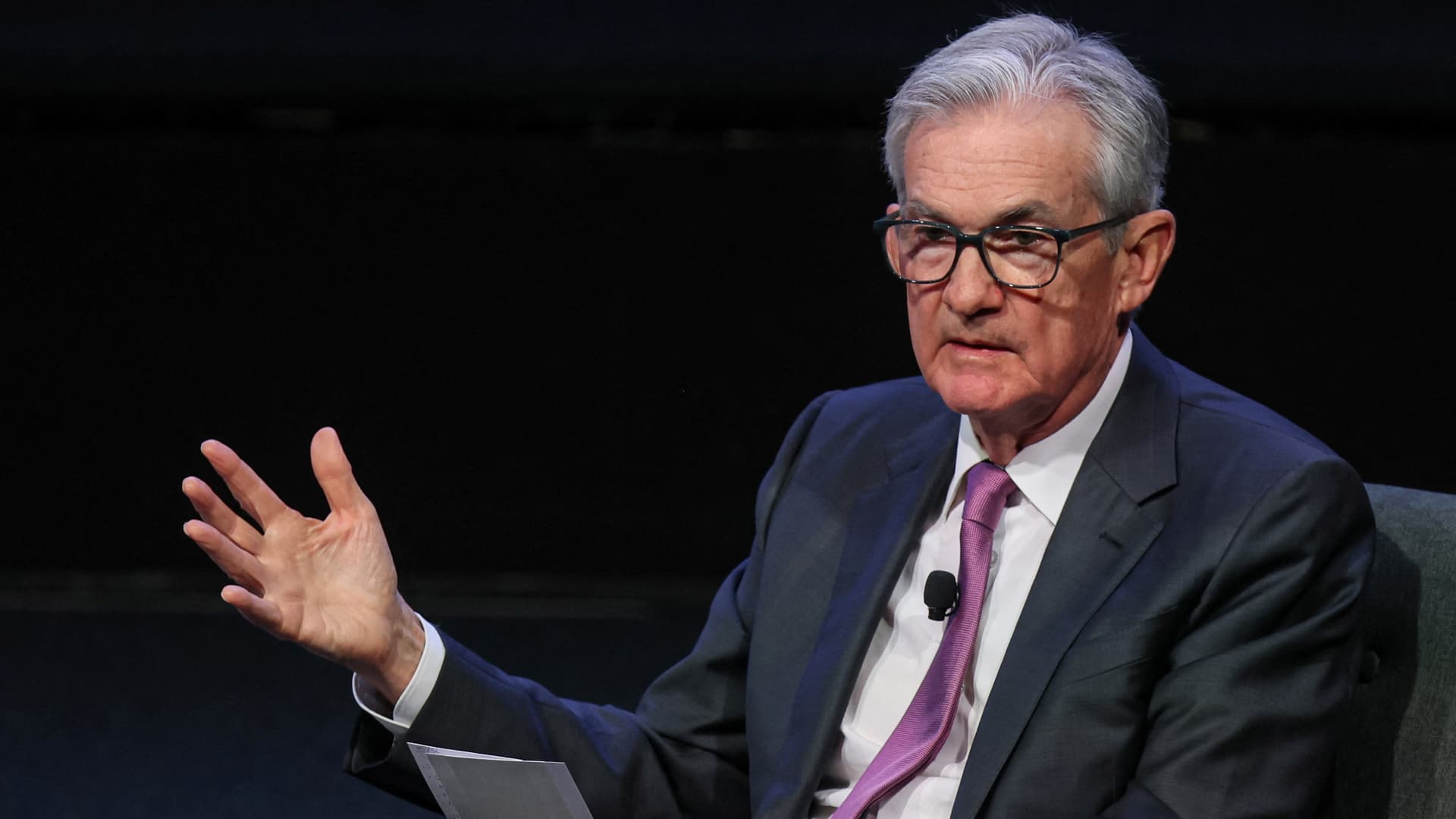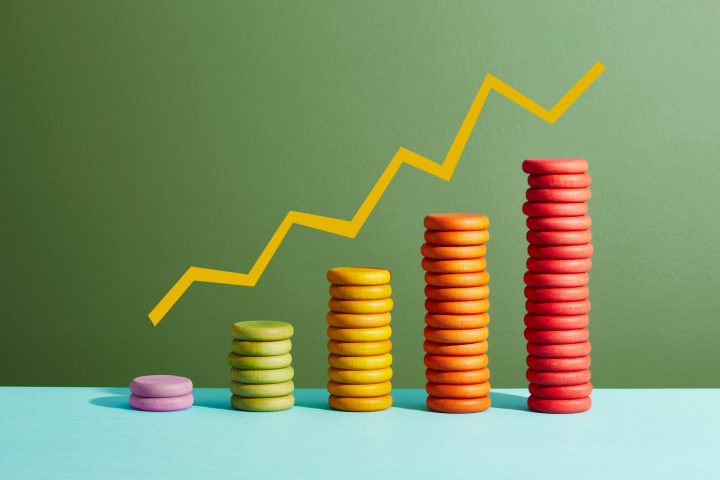Federal Reserve Chairman Jerome Powell acknowledged recent signs of cooling inflation, but said Thursday that the central bank would be “resolute” in its commitment to its 2% mandate.
In a widely anticipated speech delivered to the Economic Club of New York, Powell evaded committing to a specific policy path but gave no indication that he was leaning toward a push higher for interest rates.
As Powell spoke, futures market traders erased any possibility of a rate hike in November and decreased the chances of a move even in December. He acknowledged the progress made toward bringing inflation back down to a manageable level but stressed vigilance in pursuing the central bank’s goals.
“Inflation is still too high, and a few months of good data are only the beginning of what it will take to build confidence that inflation is moving down sustainably toward our goal,” Powell said in prepared remarks. “We cannot yet know how long these lower readings will persist, or where inflation will settle over coming quarters.”
“While the path is likely to be bumpy and take some time, my colleagues and I are united in our commitment to bringing inflation down sustainably to 2 percent,” Powell added.
The speech comes with questions over where the Fed heads from here after a succession of interest rate hikes aimed at cooling inflation. Stocks turned higher after Powell spoke and the 10-year Treasury yield backed off its highs for the session.
Powell said he doesn’t think rates are too high now.
“Does it feel like policy is too tight right now? I would have to say no,” he said. Still, he noted that “higher interest rates are difficult for everybody.”
Powell noted the progress made toward the Fed’s twin goals.
In recent days, data has shown that while inflation remains well above the target rate, the pace of monthly increases has decelerated and the annual rate has slowed to 3.7% from more than 9% in June 2022.
“Incoming data over recent months show ongoing progress toward both of our dual mandate goals —maximum employment and stable prices,” he said.
The speech was delayed at the onset by protesters from the group Climate Defiance who charged the dais at the club’s dinner and held up a sign saying “Fed is burning” surrounded by the words “money, futures and planet.”
After a short delay, Powell noted the labor market and economic growth may need to slow to ultimately achieve the Fed’s goal.
“Still, the record suggests that a sustainable return to our 2 percent inflation goal is likely to require a period of below-trend growth and some further softening in labor market conditions,” Powell said.
Fed officials have been using interest rate hikes in part to try to level out a supply-demand imbalance in the jobs market. The Fed has raised rates 11 times since March 2022 for a total of 5.25 percentage points. Coming from the near-zero level for the fed funds rate, that has taken the benchmark rate to its highest level in some 22 years.
“We’re very far from the effective lower bound, and the economy is handling it just fine,” Powell said.
The comments come the same day initial jobless claims hit their lowest weekly level since early in 2023, indicating that the labor market is still tight and could exert upward pressure on inflation.
Robust job creation in September and a slow pace of layoffs could put progress on inflation at risk.
“Additional evidence of persistently above-trend growth, or that tightness in the labor market is no longer easing, could put further progress on inflation at risk and could warrant further tightening of monetary policy,” he said.
In recent days, other Fed officials have said they think the Fed can be patient from here. Even some members who favor tighter monetary policy have said they think the Fed can halt rate hikes at least for now while they watch the lagged impact the rate hikes are expected to have on the economy.
Markets widely expect the Fed to hold off on additional rate hikes, though there remain questions over when officials might begin cutting rates.
Powell was noncommittal on the future of policy.
Given the uncertainties and risks, and how far we have come, the Committee is proceeding carefully. We will make decisions about the extent of additional policy firming and how long policy will remain restrictive based on the totality of the incoming data, the evolving outlook, and the balance of risks,” he said.
Read the full article here







